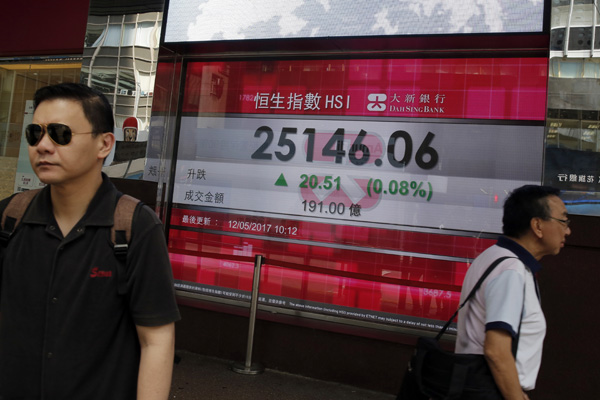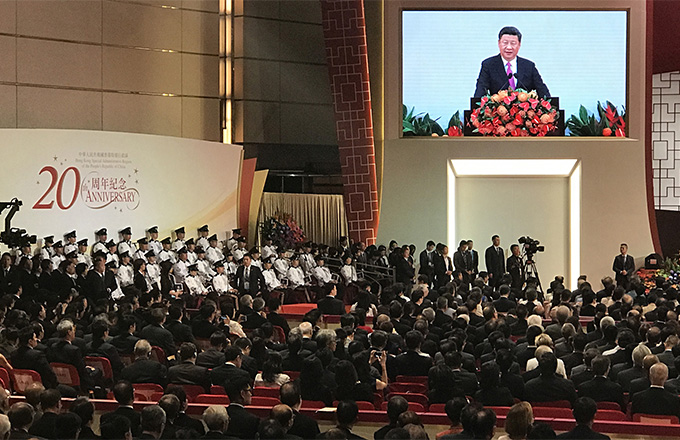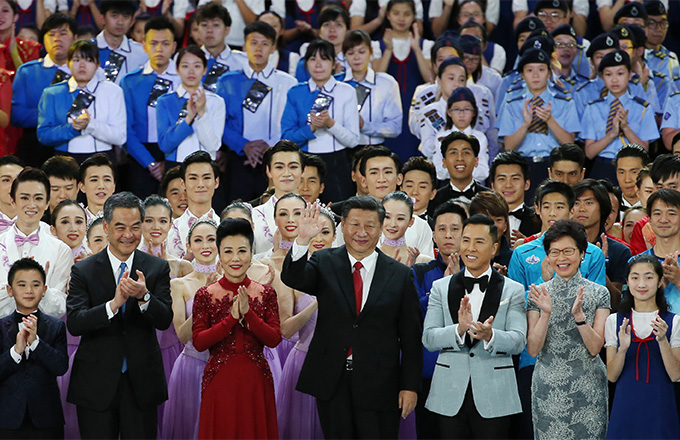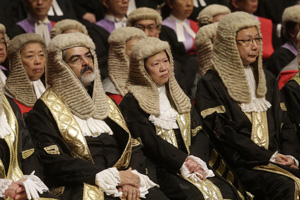A golden era for the HK stock market
 |
|
Two men walk past a screen showing the Hang Seng Index in Hong Kong on May 12. [Photo/Agencies] |
The bourse has become a magnet for mainland companies looking to list
The wave of Chinese mainland businesses that have headed south in the past 20 years, flooding Hong Kong's stock market, sending market capitalization to record highs, has led to a historic remaking of the local bourse.
The scramble for funds from initial public offerings, along with the tide of mainland capital flooding the city's securities markets, has been propelled by China's opening-up policies and the desire of mainland businesses to walk the global stage.
The number of mainland enterprises that have gone public in Hong Kong has skyrocketed from 101 in 1997 to more than 1,000 last year - more than half the total number of companies listed in the city - with the market values of mainland companies rising from about 20 percent to 63 percent of the city's total market capitalization.
Charles Li Xiaojia, CEO of Hong Kong Exchanges and Clearing Ltd, which operates the city's bourse, has observed the city's evolution from the mainland's fundraising center into the nation's global wealth-management hub, top offshore risk management center and global asset pricing pivot.
"In the past two decades, Hong Kong has developed from a regional market with regional companies listed on the exchange for local investors and limited foreign investor involvement into an international financial center. It's attracting not just international, but also mainland funds," he said.
What has transformed Hong Kong, according to Li in a 2013 interview with Jeffrey Garten of the Yale School of Management, is the ability of both the city's and the mainland's regulatory authorities to make decisions to encourage State-owned mainland companies to float in the city.
Working together, they developed the H-share concept - special regulations that initially allowed State-owned enterprises to list in Hong Kong, governed by international standards. It triggered a flood of listings of State-owned companies, followed by those in the private sector, using the city as the first stop in their global aspirations.
First H-share IPO
In 1993, Tsingtao Brewery Co, the mainland's second-largest brewer, fired the first salvo by going public on the Hong Kong Stock Exchange as the first H-share enterprise.
During the 2013 interview, Li said the mainland was still a plain economy, lacking company or securities laws, and it needed capital and ways to reform the State-owned sector.





















